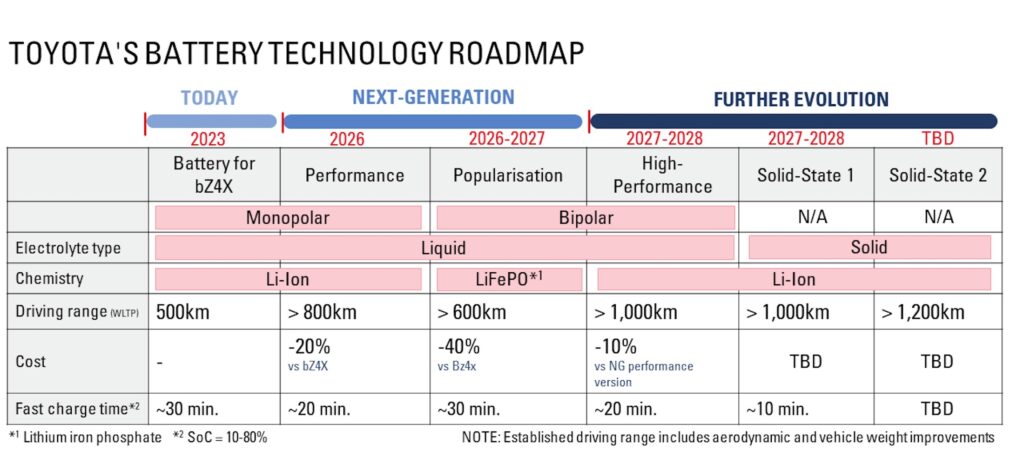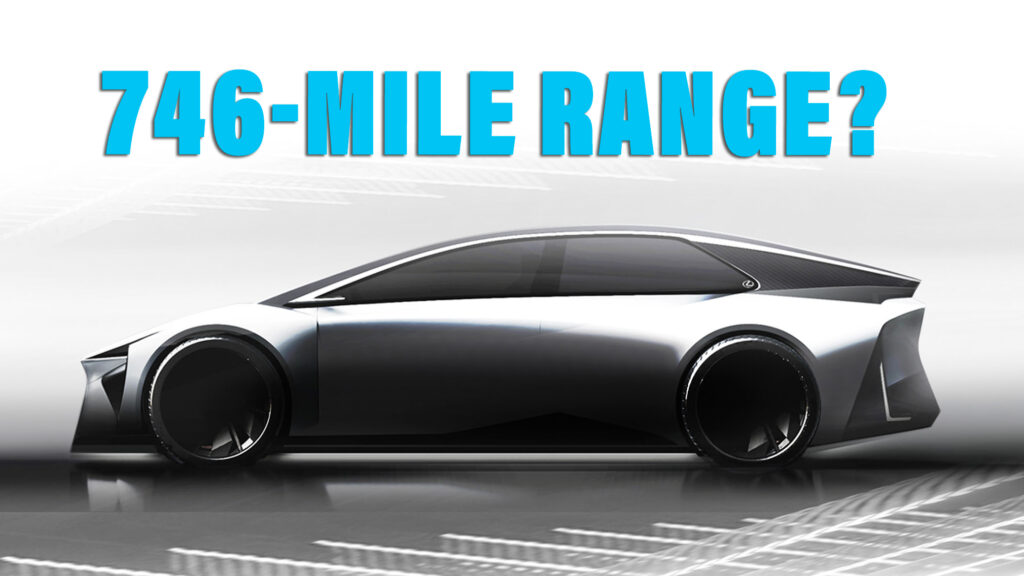Toyota has been recently criticized for the weak range of its EV models in tests, but the Japanese carmaker could be about to go from the back of the pack to the front. The company has confirmed that its next-generation battery tech will begin appearing in production cars in 2026 and that we can expect around 500 miles (805km) between top-ups initially, and almost double that from later versions.
Like other companies including Ford and Tesla, Toyota has opted to create different battery kinds to suit different applications, much like it currently builds combustion engines with a variety of different specs and power outputs. Initially, there will be two: a Performance battery that uses li-ion tech for expensive cars, and a Popularisation battery employing lithium-iron-phosphate chemistry designed to keep entry-level EVs affordable.
Toyota says the Performance battery will arrive first, hitting the road in 2026 when it will offer a 20 percent cost saving (to Toyota) versus the battery currently used in the bZ4X, 497 miles (800km) of range and a 10-80 percent charge time of 20 minutes or less. Coming later in 2026, or possibly 2027, the cheaper LFP will up the cost saving to 40 percent, increase cruising range by 20 percent (but only to 373 miles / 600 km), and be able to charge from 10-80 percent in 30 minutes.
Related: Is It Worth Replacing The Battery In An Older Hybrid Like The Toyota Camry?

Arriving in 2027-28 is a High-Performance li-ion battery that delivers a 10 percent cost saving over the first Performance battery. It takes the same 20 minutes to charge but promises over 612 miles (1,000 km) of range, though that figure is only achieved from a vehicle optimized for slippery airflow and low curb weight.
And that’s not the end of it. Also coming in 2027-28 is Toyota’s first solid-state battery, which will also provide 621 miles of range, but can be charged to 80 percent in only 10 minutes, while a further evolution coming through at some unspecified time in the future will extend an EV’s driving range to more than 746 miles (1,200 km), and eventually to as much as 932 miles (1,500 km).
Toyota is also working to reduce the thickness of its battery packs to improve interior comfort for passengers and shrink overall vehicle heights to improve aerodynamics, further improving efficiency. It says the battery in the current bZ4X measures 150 mm (5.9-inches) including its casing, but that will drop to 120 mm (4.7-inches) for regular vehicles, and 100 mm (3.9-inches) in sports cars.




